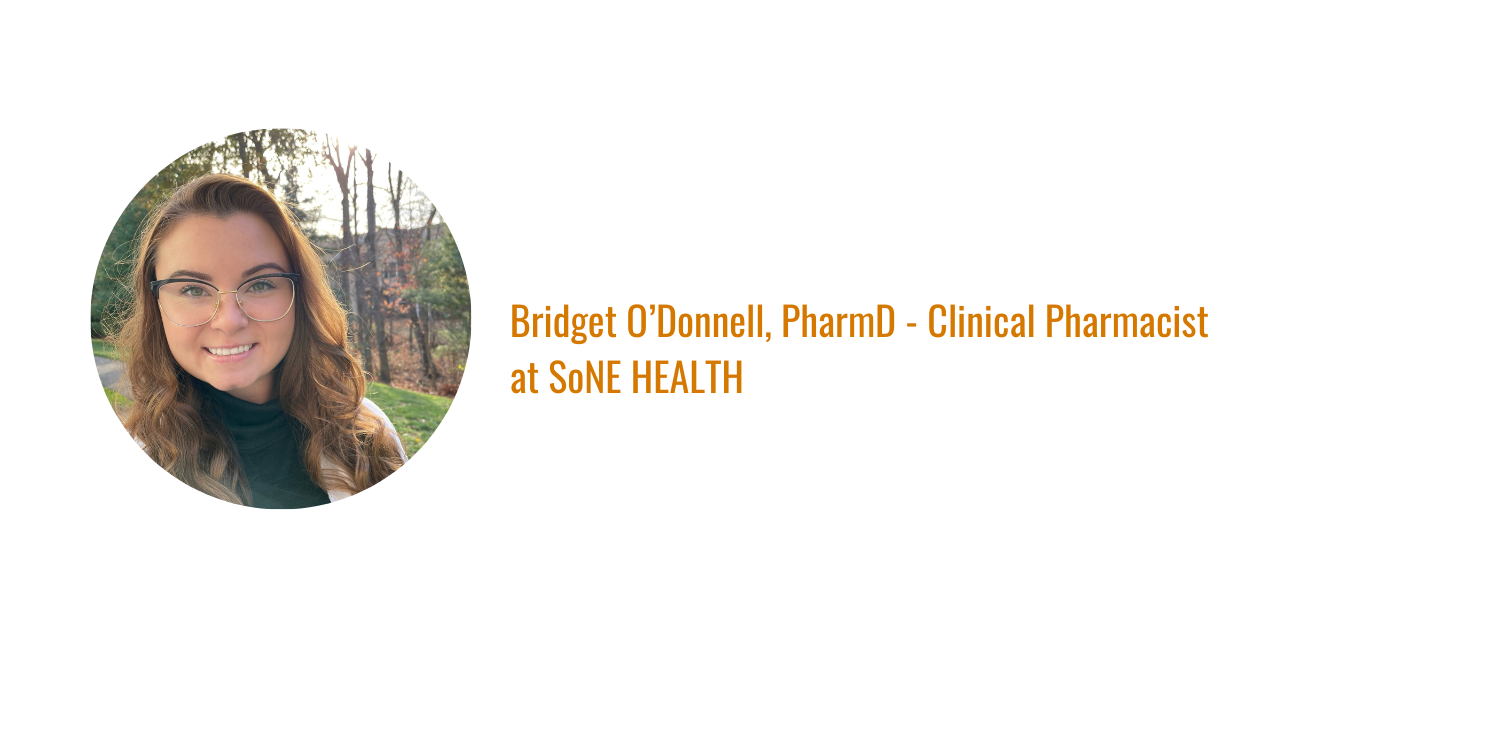By: Bridget O’Donnell, PharmD

Has your doctor started you on a statin? It may have been recommended to you after having a stroke, or heart attack, because you have diabetes, or after a routine visit with your primary care provider despite feeling fine. Statins can be used to prevent atherosclerotic cardiovascular disease (ASCVD), such as heart attacks and strokes, from happening in the first place—so-called primary prevention–or to prevent events like that from happening again—secondary prevention.
You may be asking yourself what is ASCVD? ASCVD is an umbrella term for a few different diagnoses which are listed in table 1.1,2 For any of these indications, it would be appropriate to start statin therapy. Statins are a group of medications that lower the amount of cholesterol made in your body and have been proven to reduce the risk of a heart attack or stroke. See Table 2 for examples of statin medications.
Statins are recommended for patients with diabetes even if their cholesterol levels are within the normal range since they are at a higher risk for developing ASCVD. 1,3 Patients with type 2 diabetes are 2 to 4 times more likely to have coronary heart disease and ischemic stroke.4 ASCVD is also the leading cause of death in patients with type 2 diabetes.5
If you do not have diabetes or a history of ASCVD, your healthcare provider will calculate your risk of having ASCVD in the next 10 years using your smoking history, blood pressure, gender, and cholesterol levels to determine if statin therapy may be beneficial for you.
Statins are the number one recommended medication to prevent cardiovascular disease because they are more effective and affordable than other medications that lower cholesterol such as fish oil and fenofibrates.1, 6, 7 There are many generic options available. Some studies have shown generic statin medications may be more beneficial than brand-name statins because patients are able to afford and continue taking these medications.8 It is important to take your statin medication as prescribed to maintain your health and quality of life. As always, if there are concerns regarding your medications consider discussing options with your health care provider.
Table 1.
|
Atherosclerotic Cardiovascular Disease (ASCVD)1,2 |
|
|
|
|
|
|
|
Table 2.
|
Examples of Statins |
|
| Atorvastatin (Lipitor) | Fluvastatin (Lescol) |
| Rosuvastatin (Crestor) | Lovastatin (Altoprev) |
| Simvastatin (Zocor) | Pravastatin (Pravachol) |
- Grundy SM, Stone NJ, Bailey AL, et al. 2018 AHA/ACC/AACVPR/AAPA/ABC/ACPM/ADA/AGS/APHA/ASPC/NLA/PCNA guideline on the management of blood cholesterol: A report of the American College of Cardiology/American Heart Association Task Force on Clinical Practice Guidelines | Circulation. 2018 AHA/ACC/AACVPR/AAPA/ABC/ACPM/ADA/AGS/APhA/ASPC/NLA/PCNA Guideline on the Management of Blood Cholesterol: A Report of the American College of Cardiology/American Heart Association Task Force on Clinical Practice Guidelines. November 10, 2018. Accessed August 27, 2024. https://www.ahajournals.org/doi/10.1161/CIR.0000000000000625.
- Atherosclerotic Cardiovascular Disease (ASCVD). www.heart.org. Accessed August 27, 2024. https://www.heart.org/en/professional/quality-improvement/ascvd.
- American Diabetes Association Professional Practice Committee, ElSayed NA, Aleppo G, et al. Cardiovascular disease and risk management: Standards of care in diabetes-2024. American Diabetes Association. December 11, 2023. Accessed August 27, 2024. https://diabetesjournals.org/care/article/47/Supplement_1/S179/153957/10-Cardiovascular-Disease-and-Risk-Management.
- Bertoluci MC, Rocha VZ. Cardiovascular risk assessment in patients with diabetes. Diabetology & metabolic syndrome. April 20, 2017. Accessed August 27, 2024. https://www.ncbi.nlm.nih.gov/pmc/articles/PMC5397821/.
- Atherosclerotic Cardiovascular Disease (ASCVD). www.heart.org. Accessed August 27, 2024. https://www.heart.org/en/professional/quality-improvement/ascvd.
- Kazi DS, Virani SS. Implications of cost-effectiveness analyses of lipid-lowering therapies: From the policy-maker’s desk to the patient’s bedside. Prog Cardiovasc Dis. 2019;62(5):406-413. doi:10.1016/j.pcad.2019.10.006
- 1. Rosenson RS, Freeman MW, Yeon SB. Low-density lipoprotein cholesterol lowering with drugs other than statins and PCSK9 inhibitors. UpToDate. April 26, 2024. Accessed September 10, 2024. https://www.uptodate.com/contents/low-density-lipoprotein-cholesterol-lowering-with-drugs-other-than-statins-and-pcsk9-inhibitors?search=medication+ldlc+reduction&source=search_result&selectedTitle=1~150&usage_type=default&display_rank=1.
- Gagne JJ, Choudhry NK, Kesselhelm AS, Polinski JM, Hutchins D, Matlin OS. Comparative Effectiveness of Generic and Brand-Name Statins on Patient Outcomes. September 16, 2014. Accessed September 4, 2024. https://www.acpjournals.org/doi/epdf/10.7326/M13-2942.
